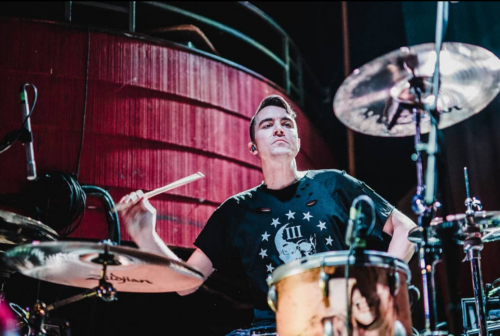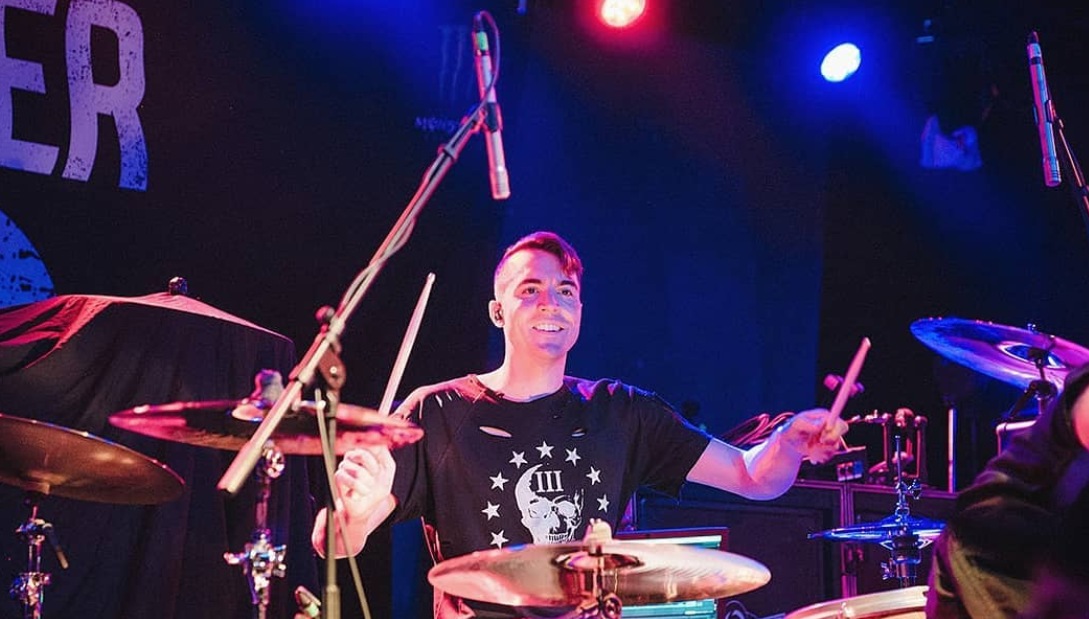
This July we got together with Andrew Wetzel, one of the masterminds behind metalcore legends, Attack Attack!, who deemed the popularized term Crabcore in 2009. Through our talk, we cover trademarking your brand, bootlegging in the modern world, the piracy empire of Limewire, commentaries with alcohol, and of course, mental health within our music scene.
Dusty Soul: First of all, I wanted to start off by thanking you for your service in the metalcore scene. What are some of your favorite moments from empty local shows to headlining Warped Tour multiple times?
Andrew Wetzel: Honestly, it’s quite hard to say. There have been so many memorable experiences with Attack Attack! and my new band Nine Shrines over the years. Simply the opportunity to travel with friends, doing what we love is such an amazing thing. I have met so many awesome people along the way and had so much fun traveling the world. The whole thing is a blast.
DS: Talk to me about your current project, deemed as drunken commentary on Soundcloud, Whiskey Stats. What got you started there and how has it evolved since the beginning?
AW: Whiskey Stats is entirely a passion project. I love research, analysis, and discussion (as does my co-host Seth). The entire thing was born out of wanting to dig into contested or highly charged topics and just see what information is out there about them. It’s a lot of fun to research and discuss topics and my entire goal with the podcast is to display healthy dialogue (or at least, what I hope is seen as healthy). As time progresses, we’ve found ourselves interested in topics that maybe have a little less research involved and more theoretical, logic based dissection required. It’s a lot of fun.
DS: When you are looking for designs to feature as your artwork, what do you look for first? Is it the same when you are buying merch from bands to wear casually?
AW: Personally, I look at or think about designs that I feel represent the brand they’re coming from. A lot of the Attack Attack! merch is colorful, playful, and often absurd. That kind of stuff really represents the brand of AA.
DS: When it comes to trademarks and general legality standards for the music industry, what are some of the first things a local group should do in order to stabalize their assets and build toward success?
AW: Trademarking (and IP in general) can be very tricky. Acquiring a trademark is not necessarily simple (and is a bit pricey). For people starting out, it’s not really critical to worry about getting a trademark right away if you publish art in the public domain, that can easily be used as a legal basis for your ownership of the art or product. The biggest things are making sure you secure clear social media handles (as well as a good email). Having a uniform handle across social media is a really big portion of getting your brand out there in a clean, concise manner. From there, you need to forge an audience, as well as a way to figure out what they want from you.
DS: I did want to lightly pick your brain about the Mandatory Merch fiasco, where fake merchandise from artists in our scene was being printed and sold this year, however I understand due to legal reasons, you may not want to be super forefront in discussion with the idea. That being said, I did want to ask you about bootlegging, and how it affects everyone, so all groups, consumers and musicians, understand. How does creating fake products that are not licensed from the artists come full circle into hurting all entities involved?
AW: Bootlegging is one of those constant battles being fought. From the artist side, there are a number of problems with it. First of all, the quality of the product can’t be controlled. I have tried over the years to make sure that my own merchandise is printed on quality stock (whenever possible) because I don’t want anyone to lose a nipple to some low thread count shirt while they’re jogging. The second issue is that the revenue is being taken from the actual artist. We often survive on merchandise sales, so when people bootleg our stuff, that’s literally taking our rent and food money away from us. Finally, fans want to support the artist. That’s why they buy our merch in the first place. So, to deceive them creates all kinds of bad vibrations in the market and may even cause them to be suspicious of licensed retailers (which I have literally just seen regarding myself and a EU subsidiary of mine).
DS: On a similar note, in terms of musical, what changed the most with piracy from the days of Napster and Limewire to now, in your own experience?
AW: I became relevant in the business at probably the height of piracy. So, I can’t really speak too much on that, other than that royalties for music in the early 2000’s were abysmal. Especially compared to our predecessors. However, with the rise of subscription platforms, we are recovering a lot of lost revenue. There are a lot of changes taking place in the industry right now, not the least of which is the fall of the traditional record label. As an artist, I have access to an insane array of tools and distribution channels that earlier in my career were unthinkable. Because of this, being a free agent is no longer a handicap. For the time being, I see it as being a huge advantage.
DS: To move back to your musical roots, I wanted to ask you, for all of our readers going through hard times with tough band mates, what was it that gave you the triumphant push that helped you get this far in the industry?
AW: I joke a lot about how I’m basically furious 24/7 and that’s honestly only half hyperbole. I am an extremely focused and motivated individual. When I set my mind to achieve something, I genuinely don’t care what it takes to get it. I will find a way. Andrew Whiting (from AA) and I both shared that in common and bonded over that. Having someone else like that in your group can be a really powerful thing and I would venture to say that he and I shared and worked towards the same vision with few distractions for years (which I think played a big role in the success of AA).
DS: For your fans that have been following you through all this, what are some of the ideas you have pumping through your brain going forward, whether musically, or even non-entertainment-esque?
AW: I’ve had a lot on my mind for a long time and I have been working to setup a lot of stuff over the past couple years. I can’t really speak on any of it at the moment, but I’d venture to say you’ll be seeing a lot more of me before too long.
DS: Being that we are a mental health site, we love asking about the hard times. What is one of the hardest things that you’ve dealt with so far in life, and how did you overcome it?
AW: A couple things come to mind, but the melt-down of Attack Attack was devastating for me. Those were extremely hard times for me personally and financially. Not only did my entire friend group just dissolve overnight, but I ended up having to sell my house on short notice and move back in with my parents to try and pick up all the pieces. When I moved back home, I spent around 4 months in isolation. I didn’t speak to anyone. In fact, I barely spoke to my parents. It was a really dark time and has been a really long road to recover from that, but it changed my life in a lot of positive ways. If you’re on the fence about going to counseling or therapy for the things you struggle with, I’d highly recommend it. If you’re interested, take the time to find a good therapist. As far as I’m concerned, there is no better investment in life than good therapy.



